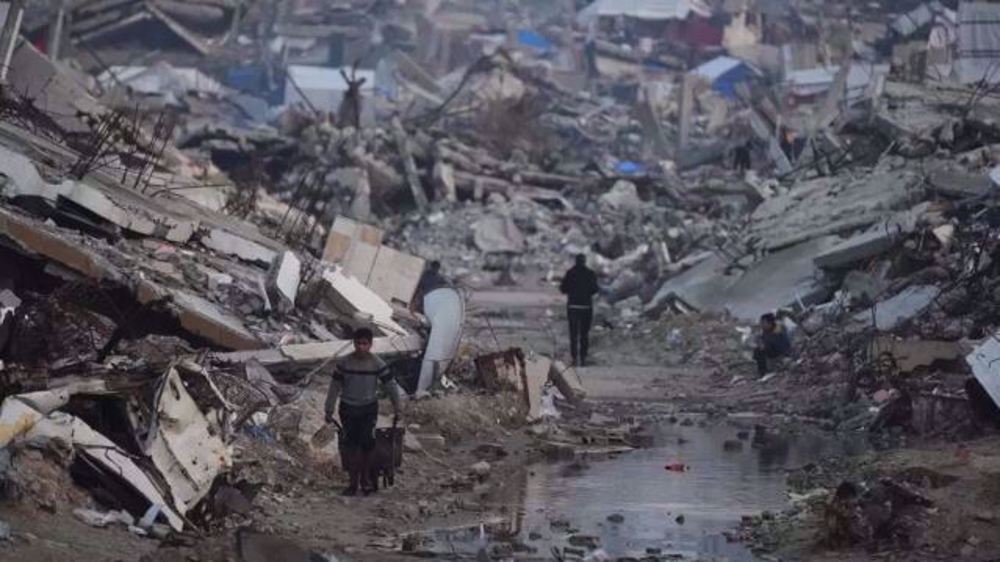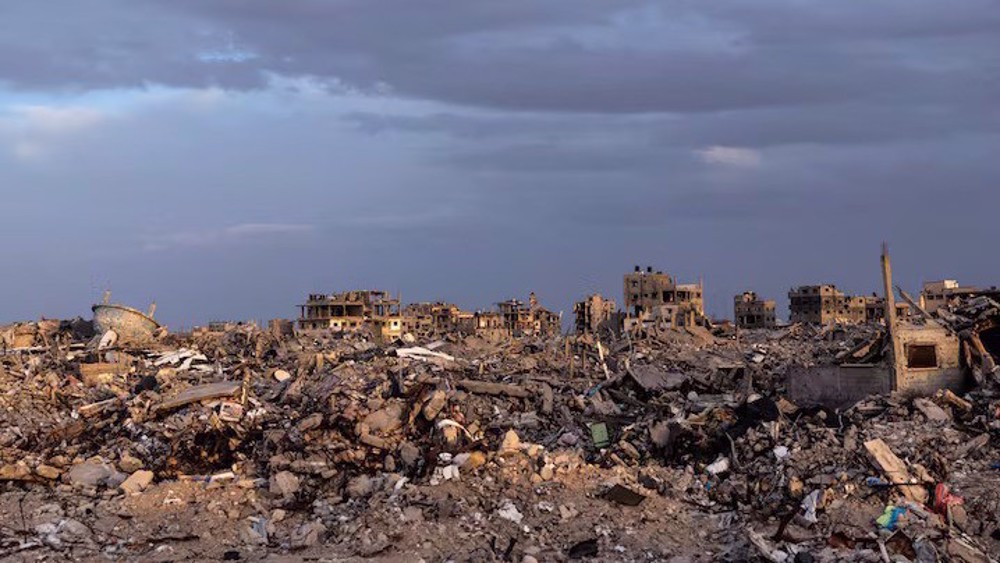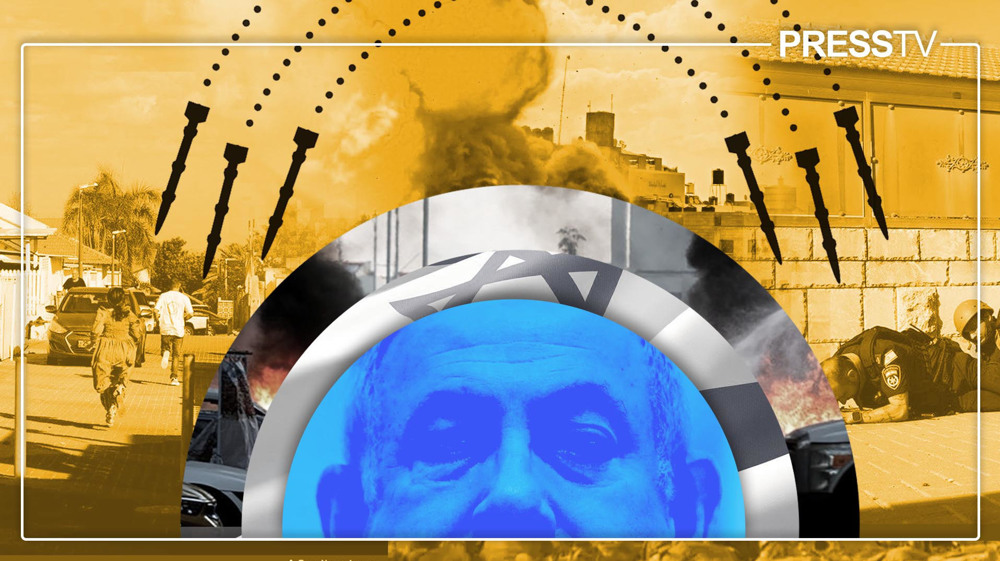Explainer: How Hamas operation against Israel changed power dynamics?
By Reza Javadi
In an unprecedented display of military prowess and power, the Palestinian resistance group Hamas launched the ‘Al-Aqsa Storm’ operation against the Israeli regime on Saturday, laying bare weaknesses in the Israeli military and intelligence and announcing new power equations.
Despite recent assessments by senior Israeli regime officials suggesting that Hamas sought to avoid an all-out conflict, the Gaza-based resistance group launched a surprise operation and inflicted significant casualties upon Israeli forces and took hundreds of soldiers and settlers as war prisoners.
In a matter of minutes, over 5,000 rockets were fired, targeting Ashqelon, Ashdod, and Tel Aviv, effectively bringing the apartheid regime to a grinding halt and a step closer to its annihilation.
Hamas political chief Ismail Haniyeh, in a speech broadcast on Hamas-run Al-Aqsa television after the surprise operation, said the Palestinian resistance was on the "verge of a great victory.”
"We are on the verge of a great victory and a clear conquest on the Gaza front," he said, noting that the operation was a direct response to
"Enough is enough, the cycle of intifadas and revolutions in the battle to liberate our Palestinian land and our prisoners languishing in occupation prisons must be completed."
Ironically, while the Israeli regime has always boasted about its strategic and military influence, it failed to predict Operation 'Al-Aqsa Storm,' also known as 'Al-Aqsa Flood,' executed by Hamas on October 7.
Israeli officials had long downplayed and dismissed warnings about the unrelenting persecution of Palestinians as well as the continued violation of the Al-Aqsa Mosque, which observers saw as a potential catalyst for an explosion of this magnitude.
Following the Israeli regime’s withdrawal from Gaza Strip in 2005, the coastal strip has faced a crippling blockade, which has made the lives of millions of people miserable.
The strip has often been described as the biggest “open-air prison” in the world.
Adding to it was simmering anger over so-called “normalizations” between Israel and some regional countries. It was also a message to those countries that normalization would not help the regime.
“We’ve decided to put an end to all this,” Muhammad Deif, the commander of Hamas military wing Qassam Brigades in a communiqué after the successful operation.
“So that the enemy understands that he can no longer revel without being held to account.”
It revealed a colossal intelligence failure, leaving the Israeli regime blindsided by the entry of Hamas resistance fighters across the southern border and the launch of thousands of rockets.
David Friedman, the former US ambassador to Tel Aviv during the Trump administration, expressed astonishment over the Hamas operation, emphasizing that such an event was unprecedented.
“In the 40 or more years that I’ve been following Israel one way or another, I’ve never seen this happen. I’ve never seen the border breached in this manner,” he said, as cited by NBC.
“Usually, even one person from Gaza gets close to the border; they’re intercepted and neutralized long before they can do anything. This is just something I’ve never seen before. It’s of course a large intelligence failure.”
Given the failure of Israeli intelligence and surveillance mechanisms, Ian Bremmer, president and founder of political consultancy Eurasia Group, was quoted as saying by CNBC that there are Hamas operatives already embedded in the Israeli military who represent “still a very real and present danger.”
His remarks corroborated what Iran’s Tasnim News Agency also reported, citing an informed Palestinian official, that some Israeli military personnel collaborated with Palestinian resistance groups in the fields of logistics and intelligence in the Al-Aqsa Storm operation.
“During al-Aqsa Storm, the information played a crucial role in facilitating the infiltration of forces into Israeli districts, especially the military bases surrounding Gaza,” the source was quoted as saying.
The latest Palestinian operation in response to the decades of Israeli occupation stands out as a departure from the norm, as it was carried out by the Palestinian resistance group, rather than a state.
The last deadly confrontation dates back to 1973 when a coalition of Arab states led by Egypt and Syria jointly launched a surprise attack against the Israeli regime.
Following the outbreak of hostilities at the time, both the United States and the Soviet Union undertook massive resupply efforts to support their respective allies, the Israeli regime and the Arab states.
The situation escalated to a confrontation between the two nuclear-armed superpowers.
But this week, the Hamas resistance group showed that it can also take on the Israeli regime, which is a nuclear-armed entity and possesses a wide assortment of weapons, with a surprise operation.
The operation busted the myth of Israeli intelligence and military prowess and also laid bare the ineffectiveness of Israeli military and anti-rocket systems such as the Iron Dome.
Many experts have talked of a new integrated West Asia under the shadow of the normalization of talks between Saudis and Israelis. However, the cornerstone of this "new West Asia" will be a Palestinian retake of lands in the occupied territories, rather than an Israeli embassy in Riyadh.
After the latest operation, all resistance groups in the region have rallied behind the Palestinian resistance, including the Lebanese Hezbollah and Yemen’s Ansarallah as well as Iraqi resistance groups, who have also warned against the intervention of the US and other Western entities.
Iran's President Ebrahim Raeisi, in a phone conversation with Hamas chief Ismail Haniyeh after the operation, said the “steely resolve” of Palestinians heralds the final victory over the Israeli regime.
“What happened with the glorious operation of the Palestinian fighters in the occupied territories was the realization of the 70-year-old expectation of the Palestinian nation and Islamic Ummah,” he said.
Hamas spokesman Ibrahim Hamad in an interview said the latest operation is “absolutely a message” to Muslim countries seeking normalization with Israel, advising them to avoid the “great shame.”
Experts opine the Hamas operation has irreversibly changed the power dynamics in the region and given the Palestinian resistance movement a clear upper hand over the regime.
Reza Javadi is a Ph.D. Candidate in British Studies at the University of Tehran.
(The views expressed in this article do not necessarily reflect those of Press TV)
‘No two-hour war’: Iran vows immediate retaliation to any attack
Pezeshkian: US must end provocations if it seeks genuine diplomacy
Iran summons German ambassador over Merz’s ‘low-minded’ remarks
Iran's Armed Forces warn EU of ‘consequences’ of IRGC designation
Iran FM: EU’s blacklisting of IRGC a ‘major strategic mistake’
EU blacklists IRGC in legally flawed move irrespective of consequences
VIDEO | Press TV's news headlines
VIDEO | Afghanistan opens first specialized cancer hospital















 This makes it easy to access the Press TV website
This makes it easy to access the Press TV website